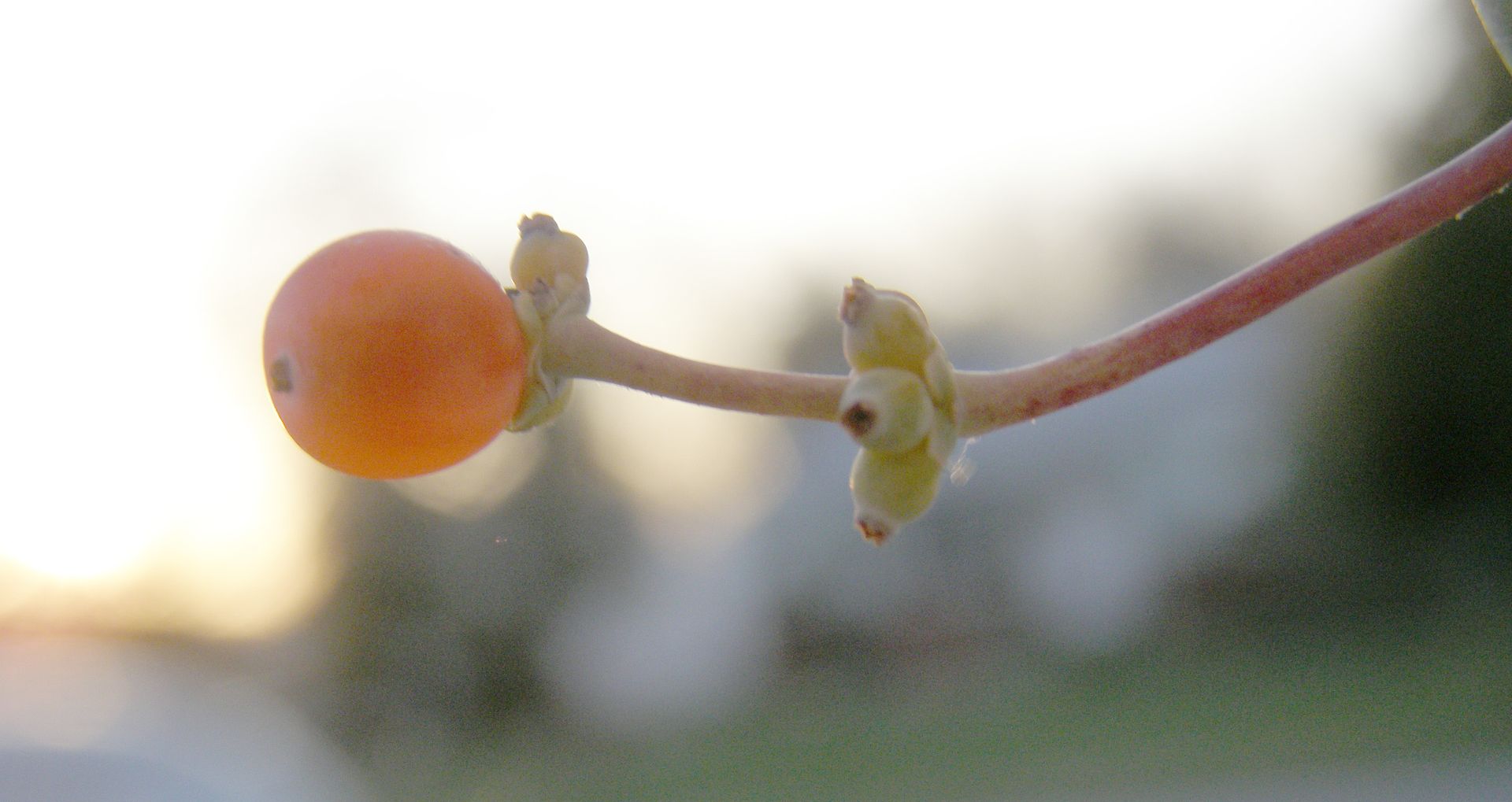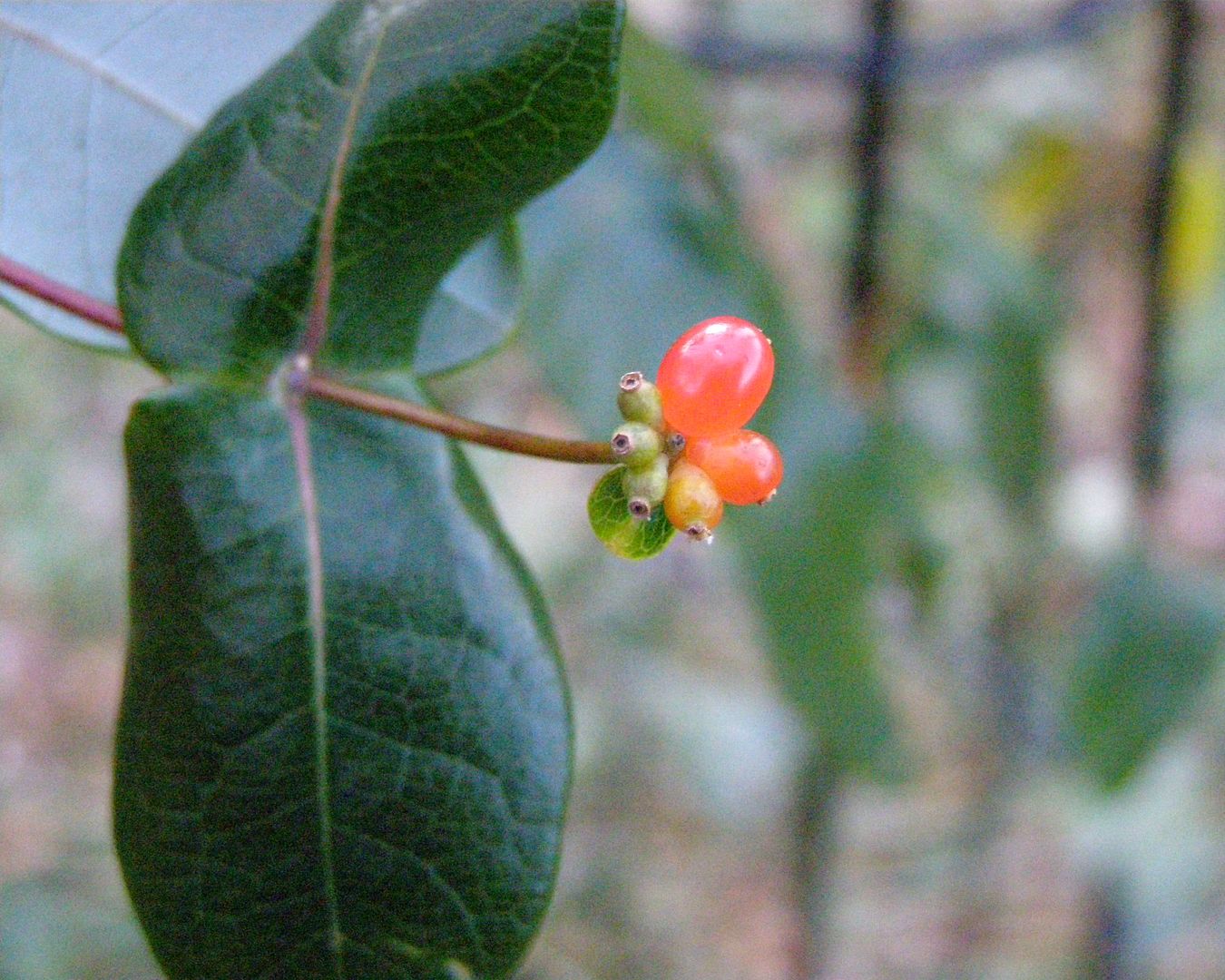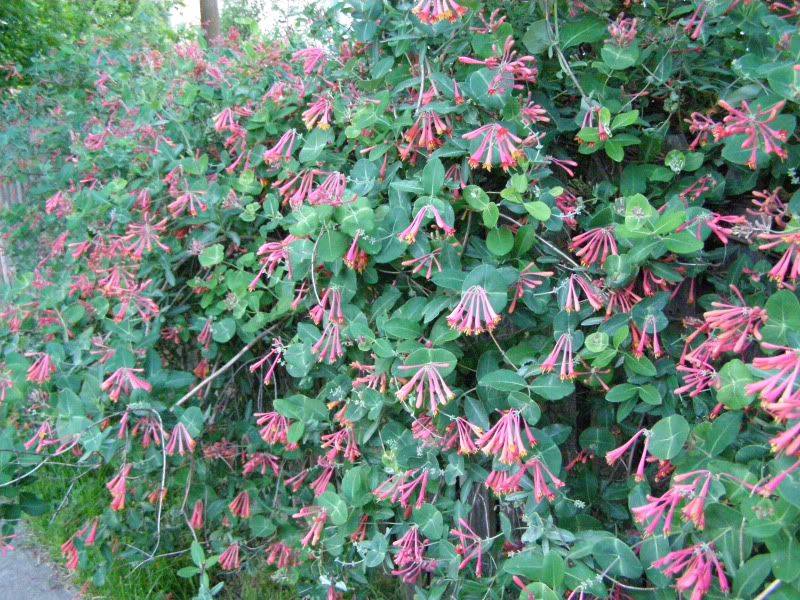
A fruit coming into season now is that of Coral Honeysuckle, also called Native Honeysuckle, Lonicera sempervirens. I know my picture is nothing spectacular, but that's because I planted two of these vines last march. So they're fairly young.

The berries grow from where the flowers had been. Only the ones that were pollinated though develop and they're a good source for birds. Most of the fruit I think actually develops in the summer time but it's probably not something you'd want to eat. Flowering in continuous for the whole year, only stopping in the winter time. The energy to produce flowers though is still being stored and come next year the whole plant becomes covered in blooms. (see below)
Last year I had to help a friend last minute with her Biology Project. Basically she needed to collect and identify 50 native plants. I said "Great, I'll go raid my garden." I also took a clipping from a friend's garden of this vine. I showed up with a big trash bag of yard clippings and their identifications. She was completely shocked when I pulled out a length of Coral Honeysuckle. Not only was it green and growing with berries, but it was also still flowering in November.

My friend's garden has a few of these vines lining his fence. That is to say it used to. The new owners of the house decided to cut everything back. Hopefully they haven't killed the plant. A good number of hummingbirds were regular visitors to his yard.

Coral Honeysuckle blooms early and gets the attention of migratory hummingbirds. I've read that this is THE plant those birds migrate with. As they bloom, I think in chilly month of March, they become the main food source for these birds.
My plants are still young but should bloom great all the same next year. They're such a wonderful plant. They don't crowd and strangle plants as the invasive Japanese honeysuckle does. They don't get as long and I've even know people to grow Coral Honeysuckle up a rose bush. Both of which are fine to prune regularly.